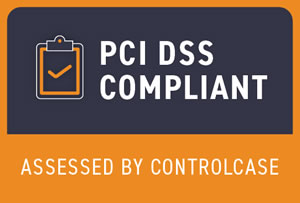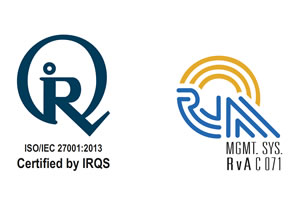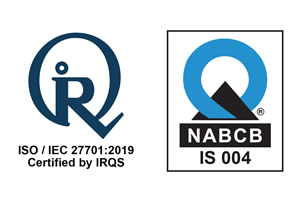 navigate_nextMedianavigate_nextOur Newsnavigate_nextAn Interview With Our Vice-Chairman
navigate_nextMedianavigate_nextOur Newsnavigate_nextAn Interview With Our Vice-Chairman
An Interview With Our Vice-Chairman
April 07, 2005

Vice-Chairman, ACLEDA Bank Plc.
What are the main obstacles facing investors in Cambodia and is enough being done to address these problems?
The lack of a coherent legal framework under which commercial and financial contracts are protected; or lack of consistency in the application and enforcement of those that there are. In fact there are some very good draft laws in the pipeline but the legislative process was seriously disrupted for nearly a year after the last national elections and this has left a serious logjam which will take many more months to clear. And after that there will be the need to establish the system and procedures and, above all, train the judiciary.
The lack of access to normal financial services must be high on the list. The basic fact is that investors must be prepared to finance their projects from their own resources as long term funding is not generally available from the banking system whilst short-term loans need to be tangibly collateralised. However, as I mention later there are some positive moves taking place which may loosen up the financial system. Nevertheless, the question remains ‘when’ as it generally takes a long time to persuade bankers that the reward justifies the risk – particularly those who survived the tough reforms of 1998-2002 years.
Lack of transparency in ‘who has what authority to approve which’ at the middle levels of the administration – which is now exacerbated by the influx of new staff following the coalition arrangements. Whilst obtaining the original investment licenses from high-level authorities is relatively easy – and Cambodia is in many respects a model of liberalisation – the congestion of authority affecting day-to-day business transactions makes planning and costing problematic and creates opportunity for abuse by venal staff be they officials, service suppliers or, indeed, one’s own employees.“corruption is everyone’s favourite stick with which to beat Cambodia at present and is of course a problem but we should put it in its proper perspective”
The Royal Government’s anti-corruption efforts are sweeping, but people’s attitudes take a long time to change. Do you think this is what is frustrating efforts to stamp out corruption or does more need to be done elsewhere?
Corruption is everyone’s favourite stick with which to beat Cambodia at present and is of course a problem but we should put it in its proper perspective. It has been around this country for quite a long time, just as it has in other countries not so far away. Why should it now seem to be more of a problem than before? I think the answer is that Cambodia enjoyed a period of relatively rapid expansion between 1999 and last year, averaging GDP growth in excess of 5percent p.a. As far as foreign input was concerned this was concentrated in two areas – garments and tourism. The rapid influx of foreign investment and the competition to ‘get in first’ certainly tempted some to ‘facilitate’ the application processes while on the other side foreign investors became seen as an easy touch. I am certainly not taking any particular position here but I am making the point that corruption is a many headed monster and fighting it is a complex matter requiring the active commitment of all involved. I would suggest as a start that both the government and their international advisors need to address the serious matter of paying a living salary to government officials. But that will require a review of the real staffing levels needed to run the administration and possible retrenchment, more efficient collection of taxes, proper budgetary planning and expenditure control and so the list goes on…. On the whole I’m optimistic but it will take a lot of time and pain.“I would suggest as a start that both the government and their international advisors need to address the serious matter of paying a living salary to government officials”
Is Cambodia’s financial system ready to support broad based economic growth?
Probably not yet but it is getting there. To support economic growth the banking system needs to act as an efficient financial intermediary but at present it falls far short. The banks are awash in liquidity but seem unable to connect with creditworthy borrowers as a result of which the ratios of loans to deposits – in many cases well under 1:1 – indicates inefficient employment of financial resources. At the same time there are potentially creditworthy borrowers who have a genuine need for both longer term finance – which very few banks are willing to provide (thereby creating an unhealthy situation where, for example, buildings and plant are financed with short term loans) – and short term working capital which is generally only provided against the collateral of land! It is not that the banks are bad but just that, as I mention earlier, the legal environment does not yet provide them with confidence in accepting other forms of security such as floating charges over goods or receivables.
Would you say Cambodia’s banking system today provides transparency and conformity with international agreements?
There have been some major improvements in the last twelve months in this area with the National Bank issuing a very explicit set of regulations on how the banks’ books shall be kept, enforcing detailed and extensive reporting requirements and, above all, obliging banks for the first time to publish annual reports providing material information. One area of concern, however, is that for whatever reason Cambodia has decided to adopt its own Cambodian Accounting Standards which are in certain respects out of line with the International Financial Reporting Standards (which themselves are still a moving target!) Whilst I am not criticising CAS, which has some good concepts, I am suggesting that with global convergence in accounting standards the adoption of a new national standard greatly complicates the matter of transparency at a time when the country is actively seeking participation in international conventions.
How did Acleda Bank set about conforming its standards and raising its international standing?
From its inception as a microfinance NGO to transformation into a bank in 2000, Acleda had worked closely with various members of the international community and had therefore been exposed to what might be termed ‘international standards’. Management had realised early on that if we conformed to those standards, and could demonstrate that we did so, we would gain their confidence which quickly translated into tangible benefits though their investment and support. Perhaps the most dramatic example of our management’s thinking here was the decision to seek a Moody’s rating in 2004 – the first in Cambodia.
Acleda has one of the strongest balance sheets in the Kingdom, stronger even than the National Bank. How has the bank achieved such rapid growth?
I am not going to comment on the National Bank as we have totally different origins, aims and objectives. However, as far as Acleda is concerned the answer is partly linked to the previous question in that by gaining the confidence of some powerful international supporters we found it relatively easy to raise capital and obtain funding at commercial rates. This in turn allowed the bank to invest very early on in world class IT systems and extensive and intensive staff training. (I understand that we are the largest employers of graduates in the country and every member of our staff – new recruits or ‘old hands’ – undertakes on average five training programs a year). Above all, it allowed us to expand the network into the ‘unbanked’ parts of the country with sufficient working capital to be able to service the huge untapped demand for credit in those areas.
To what extent would you say the support of the International Finance Corporation has helped?
In a word I would say ‘crucial’. Firstly, with the early commitment of the IFC as an investor we were able to approach other potential shareholders with confidence. Secondly, the technical support they provided, particularly in the complex legal and documentary procedures needed to establish the bank, greatly assisted in laying the foundations both domestically and internationally. Finally, they have provided us with access to medium and long term loan funds at international commercial rates without an onerous country risk loading. This has enabled Acleda to take a more progressive view in its lending policy without distorting our balance sheet. However, we should not forget the contribution of our other initial investors, especially DEG, FMO and Triodos-Doen, whose support was equally indispensable. It was good collective teamwork with IFC in a sense taking a co-ordinating role.
From micro-finance to corporate loans, Acleda now offers a broad range of services. Do you envisage the bank ever restructuring into two separate entities?
Whilst I would not rule out anything in this rapidly changing world it is unlikely in the foreseeable future that we would undertake such a move – for two very simple reasons:
Firstly, the ‘corporate loans’ that you refer to are really SMEs. Whilst it is true that we do have large corporate clients, both domestic and international, our relationship is more as a provider of cash management and other services rather than lending. As well as bringing in fees this generates cash-flow which helps us finance our micro and small lending. To separate them would unnecessarily complicate both our financial administration as well as creating an artificial distinction in our business which does not exist (after all we also provide the same cash management services to individuals and small businesses!)
Secondly, the nature of our business is that we help entrepreneurs at the lower end of the economic spectrum move up the wealth ladder through providing loans to support their business growth. As they expand we want to be able to continue to support them as seamlessly as possible and these successful people – some of whom have been banking with us for 10 years – are the core of our so called ‘corporate’ portfolio.
Most people think of Acleda and they think of microfinance. Do you think the image of the bank needs nurturing a little to make more people aware of its commercial activities?
Yes, we recognise that it will take some time to achieve the image of ‘high street’ bank but we have to be very careful in how we go about this. Microfinance is still our main focus and it is important that we do not lose that image in trying to re-brand ourselves as a commercial bank! Fortunately the commercial community in Cambodia is relatively small and word spreads fast. (This of course can be a two edged sword!) Our range of services, particularly in being able to deliver an integrated and on-line provincial network unmatched by any other bank at present, allows us to individually target our commercial prospects without the need for a wholesale image change.
Do you think there are too many banks in Cambodia for the size of the market?
"No, I don’t think that there are too many banks – just too many banks trying to do the same thing"No, I don’t think that there are too many banks – just too many banks trying to do the same thing. Cambodia is a big country and in spite of its well rehearsed difficulties in attracting and absorbing large scale investment in reality the grass-roots economy is doing relatively well. Yet with few exceptions the commercial banks are concentrated in four or five large cities. Thus they are limiting themselves to perhaps no more than 15 percent of the population which in turn restricts them to competing for the few commercial customers which are located in the cities. What is needed is massive investment in building networks but here we have a ‘chicken-and-egg’ situation as this can only happen when investors are confident that they will see an adequate return on their capital. And this takes us back to the very beginning of this discussion...!
Note: The above interview first appeared in 'Invest in Cambodia 2005'.


 USD
USD THB
THB EUR
EUR AUD
AUD VND
VND CAD
CAD LAK
LAK JPY
JPY GBP
GBP CNY
CNY




